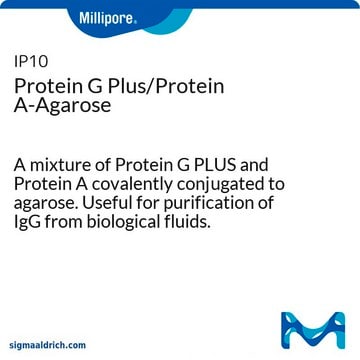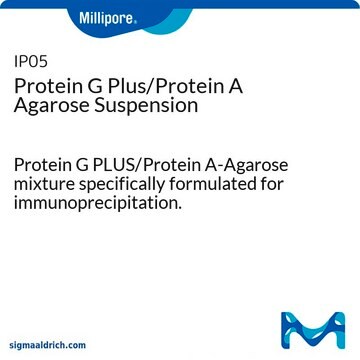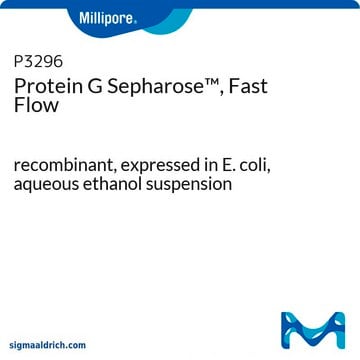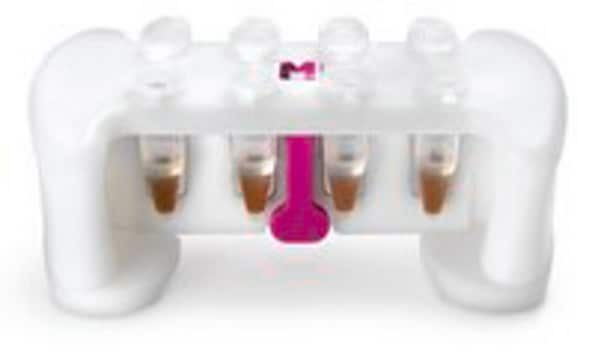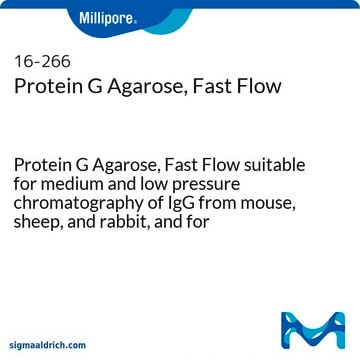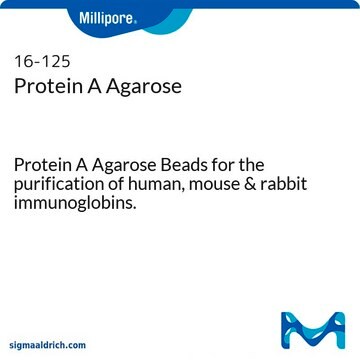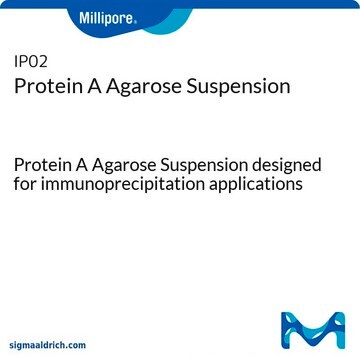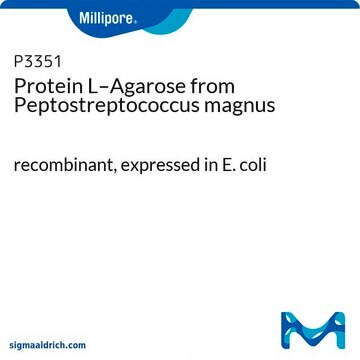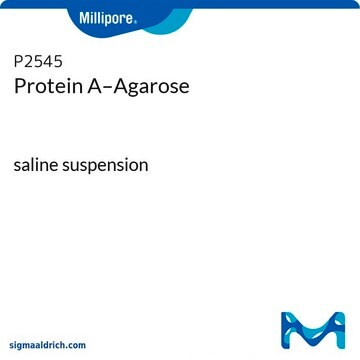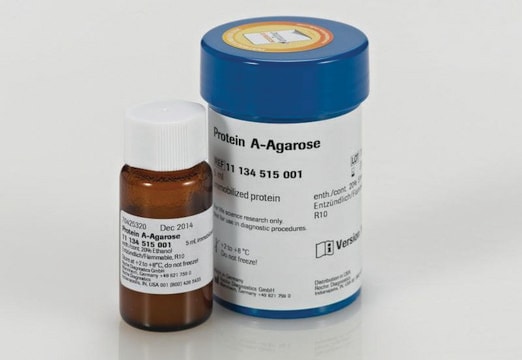IP04
Protein G Plus-Agarose Suspension
Protein G PLUS agarose suspension specifically formulated for immunoprecipitation.
About This Item
Recommended Products
form
slurry (Liquid)
contains
≤0.1% sodium azide as preservative
manufacturer/tradename
Calbiochem®
storage condition
do not freeze
technique(s)
immunoprecipitation (IP): suitable
suitability
suitable for immunoprecipitation
shipped in
wet ice
storage temp.
2-8°C
General description
Warning
Other Notes
Legal Information
Storage Class Code
11 - Combustible Solids
WGK
WGK 1
Flash Point(F)
Not applicable
Flash Point(C)
Not applicable
Certificates of Analysis (COA)
Search for Certificates of Analysis (COA) by entering the products Lot/Batch Number. Lot and Batch Numbers can be found on a product’s label following the words ‘Lot’ or ‘Batch’.
Already Own This Product?
Find documentation for the products that you have recently purchased in the Document Library.
Customers Also Viewed
Related Content
We manufacture IP and antibody purification agarose beads that purify immunoglobulins and IgG fractions. Our kits also provide a total antibody purification process
Our team of scientists has experience in all areas of research including Life Science, Material Science, Chemical Synthesis, Chromatography, Analytical and many others.
Contact Technical Service
